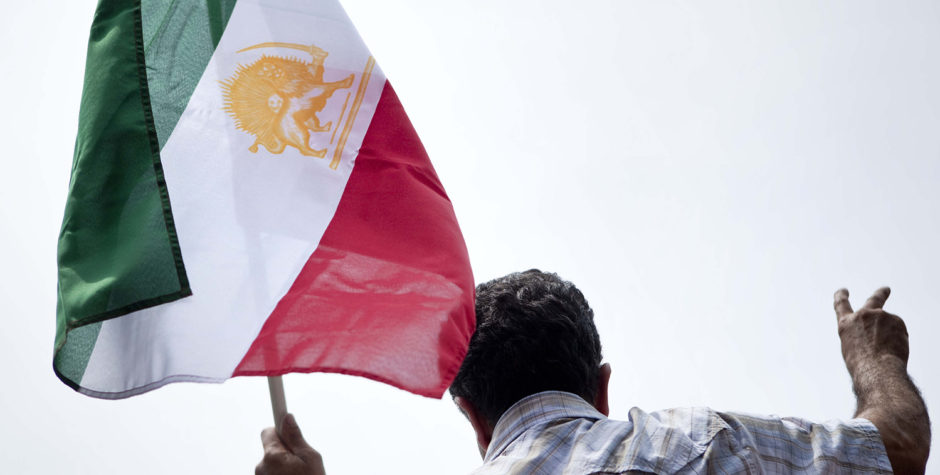New Sanctions on Iran: What You Need to Know
On May 8th of this year, President Trump announced the U.S. withdrawal from the Joint Comprehensive Plan of Action (JCPOA), or the Iran Nuclear Deal. The President took this action as the flawed agreement only postponed—it did not stop—Iran’s development of a nuclear weapon. It also did not address two other serious threats to the region and to the peace of the world: 1) Iran’s continued development and testing of ballistic missiles in violation of United Nations resolutions; and, 2) Iran’s continued sponsoring of numerous terrorists and terror organizations literally around the world. They remain the world’s leading state-sponsor of terrorism. Their leaders still call for the destruction of Israel and the United States.
Following that initial withdrawal, limited sanctions took effect. These focused mainly on steel, aluminum, gold, and other precious metals.
As of midnight, on November 5, 2018, new stronger sanctions began. These sanctions target 50 Iranian banks, hundreds of individuals or vessels involved in Iran’s shipping industry, the nation’s oil production and sales, and Iran Air, the country’s main air carrier. Since the sanctions process began, the Iranian Rial has lost two-thirds of its value. Demonstrations against the government, ongoing for almost a year now, have ticked up as the people protest Iran’s weak economy and jobs market, run-away inflation, and corruption in the highest levels of the theocracy that runs Iran. The protesters have also loudly objected to the Iranian government’s financial support for terror groups like Hezbollah, Hamas, and Yemen’s Houthi Rebels while its own citizens suffer.
President Rouhani is trying to appease the people of Iran by calling for calm and giving government assistance to millions of people. He claims that Iran has the resources to defy the United States and overcome the sanctions. But this is a pipe dream. Even though nations in the European Union remain committed to the JCPOA, European businesses have scaled back doing business with Iran or cancelled projects altogether. The U.S. dollar is the preferred currency for international trade and for financial reserves. With the diminished Rial, Iran cannot service its debts and businesses know it. Given a choice between continuing to do business with Iran and forfeit dealing with the U.S. markets, or aligning with the U.S. and pulling back from Iran, the choice is simple and based on the financial bottom line. As companies stop trade with Iran, the financial and political crisis is exacerbated.
Under the new sanctions, any non-U.S. company that continues to do business with Iran can be fined and excluded from the financial system of the United States. This is a big deterrent to companies who want to thwart the sanctions, as most international companies need to be able to trade in dollars. Even if Iran secretly sells oil, by barring Iran from the U.S. financial system, collecting payments for the oil will be extremely difficult. Oil production and related industries account for a huge portion of the Iranian economy.
It should be noted that medicine and other humanitarian products are exempted from the U.S. sanctions. President Trump has made it clear that the United States cares for the Iranian people. The sanctions regimen is targeting their government, which not only sews unrest around the world, but also mistreats its own people. Additionally, eight nations will be able to conduct business with Iran for a limited period of time so as not to create a crisis in the international markets.
The goal of these sanctions is to force Iran to the negotiating table where a new agreement might be established that rewards Iran financially while eliminating its malign activities and its march toward possessing nuclear weapons. Unlike the JCPOA, it is based in reality, is clear-eyed about the true threat that Iran poses to the region and to the world, and makes Iran’s participation in the financial community of nations contingent upon it changing its behavior.
The long-term reaction of the Iranian government to all of this is unknown. Iran might attempt to convince Europe to continue doing business with them. However, this is probably not a viable option, due not only to the financial reasons mentioned above—but also because just recently Iran has attempted to assassinate Iranian dissidents living in France, Germany, and Denmark. Iran appears to be a slow-learner regarding how civilized nations view such behavior.
If the past is prologue, Iran will possibly react by using its proxies and Iranian militias to attack U.S. personnel in Syria and Iraq. It might attempt to disrupt the shipping lanes in the Straits of Hormuz and in the Persian Gulf. More than likely, it will continue to use Hezbollah and Hamas to target innocent people in Israel. In the past, it has joined with its ally North Korea to launch cyber-attacks. That, too, is a distinct possibility.
Another possible, but unlikely, reaction by the Iranian authorities would be to sit down with the United States and its partners and negotiate in good faith, taking concrete and verifiable steps to change their behavior and join the community of nations. Most experts say this is highly unlikely. It’s a shame. The Iranian people deserve better.

